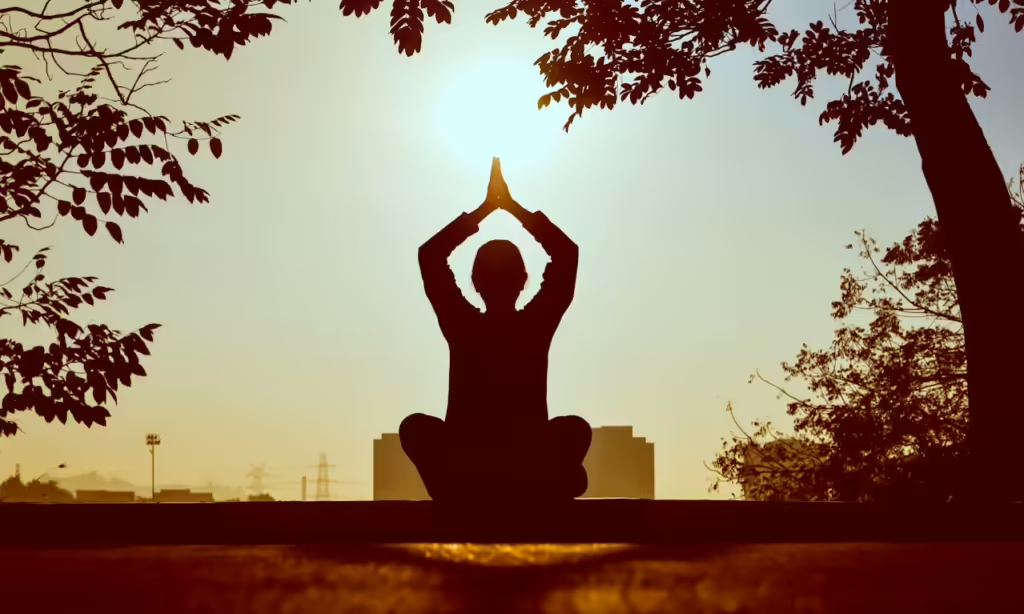Yoga has gained recognition as a powerful tool in promoting mental, emotional, and physical health. Beyond the physical benefits of increased flexibility and strength, yoga offers profound mental health advantages that are particularly beneficial in recovery from addiction and mental health challenges. At Greater Boston Behavioral Health, we recognize the transformative role yoga can play in recovery, and we incorporate it as part of our holistic approach within our Mental Health Programs, Intensive Outpatient Programs (IOP), and Partial Hospitalization Programs (PHP).
This article explores the science-backed benefits of yoga and how it complements evidence-based therapies such as Cognitive Behavioral Therapy (CBT) and Dialectical Behavioral Therapy (DBT). It also highlights the ways yoga can be integrated into mental health and recovery programs to foster a balanced and sustainable healing process.
What Is Yoga and Its Core Principles?
Yoga is a centuries-old practice that combines physical postures (asanas), breath control (pranayama), and meditation to promote balance in the mind, body, and spirit. Originating in ancient India, yoga is rooted in the principles of mindfulness, discipline, and self-awareness. At its core, yoga is more than just exercise—it’s a holistic approach to achieving inner peace and resilience.
The foundational principles of yoga include:
- Ahimsa (Non-violence): Encouraging kindness toward oneself and others, essential in the self-compassion needed during recovery.
- Satya (Truthfulness): Developing an honest relationship with oneself, crucial for addressing mental health struggles.
- Balance: Physical poses and controlled breathing help individuals regain equilibrium in times of emotional or physical distress.
These principles make yoga a powerful tool for individuals seeking recovery from addiction or mental health challenges.
The Connection Between Yoga and Mental Health
Yoga integrates physical postures, breathing techniques, and meditation to create a practice that nurtures the mind, body, and spirit. Scientific research has demonstrated that yoga positively affects the brain and body by:
- Reducing cortisol levels, the hormone associated with stress.
- Increasing serotonin production, which regulates mood and emotional well-being.
- Activating the parasympathetic nervous system, which induces relaxation and counteracts the body’s fight-or-flight response.
- Enhancing neuroplasticity, helping the brain form new, healthier connections and pathways.
These effects make yoga an ideal complement to traditional therapies in programs such as Anxiety Treatment, Depression Treatment, and Anger Management.
Scientific Evidence Supporting Yoga in Recovery
Research has shown that yoga is more than just a spiritual practice; it has measurable benefits for mental health and recovery. Some key findings include:
- Stress Reduction: A study published in Frontiers in Psychiatry found that yoga lowers cortisol levels, the hormone linked to stress.
- Improved Mood: The regular practice of yoga has been shown to increase serotonin levels, helping to combat depression and anxiety.
- Brain Function: Yoga enhances neuroplasticity, the brain’s ability to form new pathways, which is critical for overcoming addictive behaviors and negative thought patterns.
- Physical Healing: Yoga aids in reducing chronic pain and improving sleep, which are often disrupted during recovery.
How Yoga Supports the Recovery Process
1. Reduces Stress and Anxiety
For individuals facing mental health challenges or recovering from substance abuse, managing stress is crucial. Yoga helps reduce stress and anxiety through controlled breathing and mindful movement.
- Breathwork (Pranayama): Techniques like diaphragmatic breathing activate the body’s relaxation response, slowing the heart rate and calming the nervous system.
- Mindful Movement: Yoga postures allow individuals to focus on the present, helping to quiet the mind and alleviate anxious thoughts.
This stress-reduction mechanism makes yoga particularly effective when paired with evidence-based therapies like CBT and DBT, where individuals learn to challenge negative thought patterns and develop healthier coping mechanisms.
2. Enhances Emotional Regulation
Recovery often requires navigating complex emotions, and yoga can help individuals build emotional resilience.
- Yoga promotes self-awareness, helping individuals recognize their triggers and emotional responses.
- Regular practice of yoga fosters patience and self-compassion, enabling individuals to process difficult emotions in healthier ways.
By incorporating yoga into Mental Health Therapy Programs, individuals learn skills that are transferable to real-life situations, such as handling conflict or resisting unhealthy urges.
3. Improves Physical Health to Support Mental Recovery
Mental health recovery is deeply tied to physical well-being. Yoga’s physical benefits include improved posture, flexibility, and blood circulation—all of which can contribute to a better mood and increased energy levels.
- For individuals recovering from substance use disorders, yoga helps reverse some of the physical damage caused by addiction.
- Restorative yoga poses are especially beneficial in alleviating tension stored in the body due to trauma or chronic stress.
These physical benefits align with the goals of Partial Hospitalization Programs, where the integration of physical and mental health is emphasized.
4. Builds Mindfulness and Self-Awareness
Mindfulness, a key aspect of yoga, is the practice of being fully present in the moment. This heightened awareness allows individuals to:
- Identify negative thought patterns or destructive behaviors.
- Focus on the present rather than dwelling on the past or worrying about the future.
- Develop a greater sense of control over their thoughts and emotions.
Mindfulness is particularly beneficial for individuals participating in Family Therapy Programs, as it encourages open and empathetic communication.
5. Creates a Sense of Community and Belonging
Yoga classes, whether part of a Group Therapy Program or standalone sessions, foster a sense of community. For those in recovery, feeling connected to others can significantly improve mental health outcomes.
- Practicing yoga in a group setting allows individuals to bond over shared experiences.
- The non-competitive nature of yoga promotes a supportive and inclusive environment, reducing feelings of isolation.
This sense of belonging complements other therapeutic modalities like group counseling and family therapy.
6. Facilitates Rest and Recovery
Rest is vital for mental and emotional recovery. Yoga encourages relaxation by activating the parasympathetic nervous system and reducing tension in the body. Practices like Yoga Nidra (guided meditation) or restorative yoga can help individuals achieve deep relaxation, improving sleep quality and reducing symptoms of anxiety and depression.
Yoga’s Impact on Emotional Well-Being
Yoga provides a safe and structured way to explore and regulate emotions, making it particularly beneficial for those struggling with anxiety, depression, or trauma.
- Mindfulness: Yoga encourages individuals to focus on the present moment, reducing rumination and worry.
- Emotional Release: Certain yoga poses, like hip openers, are known to release tension stored in the body, providing relief from emotional blockages.
- Resilience Building: By promoting self-awareness, yoga helps individuals better understand their emotional triggers and develop healthier coping strategies.
How Yoga Complements Traditional Therapies
Yoga serves as a bridge between holistic and evidence-based treatments, enhancing the effectiveness of therapies like Cognitive Behavioral Therapy (CBT) and Dialectical Behavioral Therapy (DBT).
- CBT Synergy: Yoga promotes mindfulness, which helps individuals recognize and reframe negative thought patterns.
- DBT Integration: The emphasis on breathing and emotional regulation aligns with DBT’s focus on distress tolerance and interpersonal effectiveness.
- Trauma-Informed Care: For those with trauma, yoga provides a non-verbal way to process and release stored emotions, complementing talk therapies.
Types of Yoga Practices for Recovery
There are various styles of yoga, each offering unique benefits for individuals in recovery:
- Hatha Yoga: A gentle, beginner-friendly practice focusing on foundational poses and breath control. Ideal for those new to yoga.
- Restorative Yoga: A slow-paced practice using props to support the body, helping individuals relax and recover physically and emotionally.
- Yoga Nidra: Also known as yogic sleep, this meditative practice induces deep relaxation, reducing symptoms of anxiety and insomnia.
- Vinyasa Yoga: A dynamic style linking breath and movement, promoting mindfulness and physical endurance.
- Trauma-Sensitive Yoga: A specialized approach designed to create a safe environment for individuals recovering from trauma.
Yoga as Part of Holistic Recovery at Greater Boston Behavioral Health
At Greater Boston Behavioral Health, we believe recovery is most effective when it addresses the whole person—mind, body, and spirit. That’s why we integrate yoga into our Mental Health Programs, Intensive Outpatient Programs, and Partial Hospitalization Programs. Yoga complements our evidence-based therapies, including CBT, DBT, and other individualized approaches tailored to each person’s unique needs.
Whether you’re seeking Anxiety Treatment, Depression Treatment, or strategies for Anger Management, yoga can be a transformative addition to your recovery plan. Our expert team guides clients through yoga practices that promote relaxation, mindfulness, and self-awareness, laying the foundation for long-term mental health and resilience.
Conclusion
Yoga offers a unique, holistic approach to recovery by addressing the physical, mental, and emotional aspects of healing. Whether reducing stress, fostering mindfulness, or improving physical health, yoga can be a valuable complement to traditional therapeutic methods. At Greater Boston Behavioral Health, we’re committed to providing comprehensive care that integrates the best of evidence-based practices and holistic therapies like yoga.
If you or a loved one are struggling with mental health challenges or seeking a well-rounded recovery approach, we invite you to explore how our programs can help. Together, we can support you on your journey to a healthier, more balanced life. Call us at (888)278-0716 today to learn more about our services and how we can help you on your journey to recovery!
FAQs on How Yoga Helps in the Recovery Process
How does yoga help in mental health recovery?
Yoga helps by reducing stress, improving emotional regulation, and fostering mindfulness. It complements traditional therapies like CBT and DBT, making it an effective tool in recovery programs.
Can yoga reduce symptoms of anxiety and depression?
Yes, yoga has been proven to lower cortisol levels, increase serotonin, and enhance overall mood, making it effective in reducing anxiety and depression symptoms.
What types of yoga are best for mental health recovery?
Gentle practices like Restorative Yoga, Hatha Yoga, and Yoga Nidra are particularly beneficial for relaxation and emotional healing. Trauma-sensitive yoga is ideal for individuals dealing with past traumas.
Is yoga suitable for beginners in recovery programs?
Absolutely! Yoga can be adapted to all skill levels. Many mental health programs offer beginner-friendly sessions tailored to individual needs.
How does yoga work alongside traditional mental health therapies?
Yoga enhances the effects of therapies like CBT and DBT by promoting mindfulness, reducing distress, and providing a physical outlet for emotional regulation.
Can yoga help with anger management?
Yes, yoga encourages self-awareness and teaches techniques like controlled breathing, which are effective for managing anger and reducing impulsive reactions.


